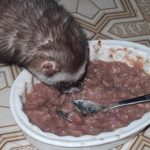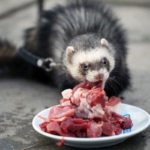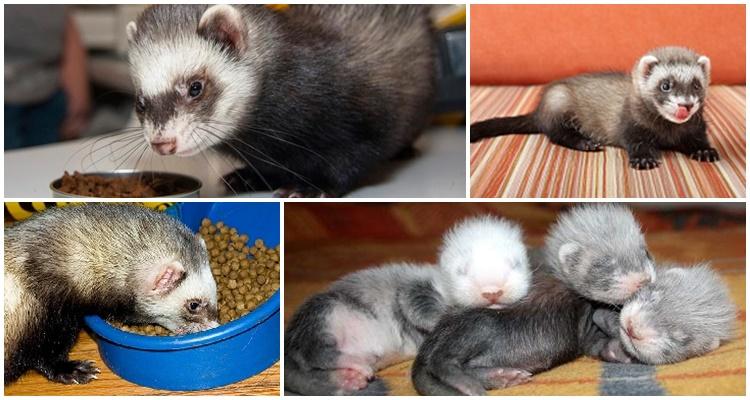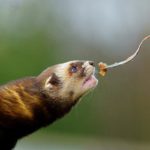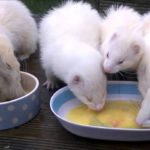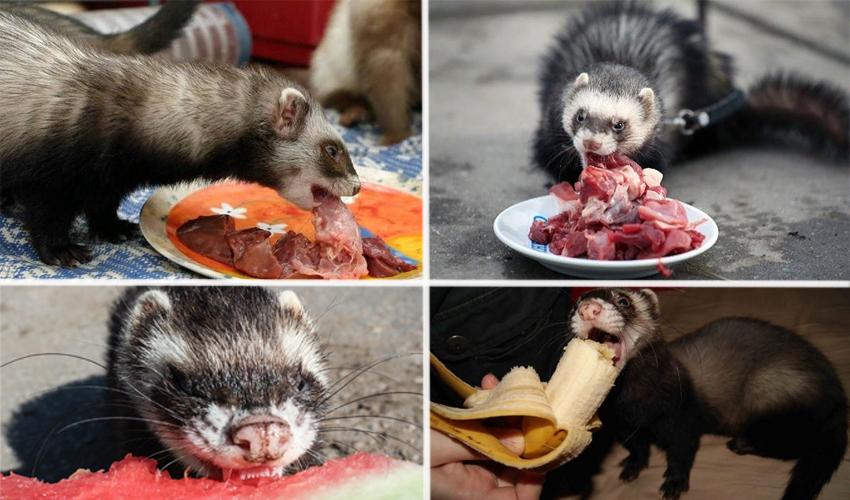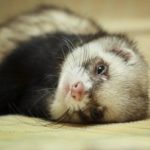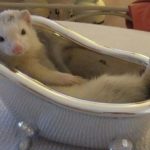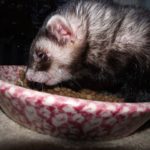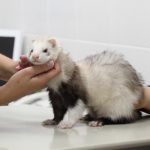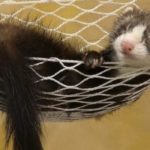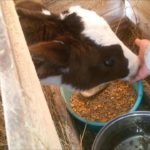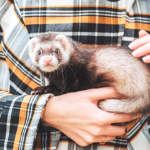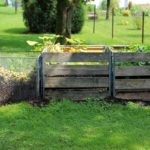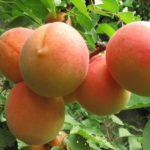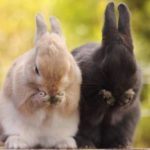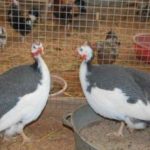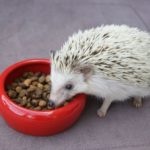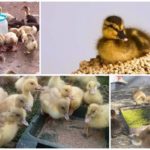The ferret is an animal that lives in nature, but is sometimes kept at home. This is an unusual pet, so you need to know what you should feed your ferret, what you can give it and what you can’t. How to create a diet depending on the age and condition of the animal’s body, what natural food to feed, what mixtures, vitamins and supplements can be given at home.
What do ferrets eat in the wild?
Animals are active mainly at night and consume almost exclusively animal food. They eat small rodents - voles, shrews, amphibians - lizards, frogs, and attack muskrats, moles and hedgehogs. Ferrets destroy bird nests, eat chicks and eggs, and can hunt hares, hazel grouse, black grouse and even snakes, and are not afraid of poisonous species.
Ferrets diversify their diet with large insects. If there are villages near the habitat, the animals are not averse to getting into the poultry house, where they can get poultry.
Feeding frequency
Ferrets are energetic and active, constantly on the move, so it is not surprising that they often chew on something. Food should be supplied to the animals' bodies fractionally and in small volumes. This differs from dogs and cats, which need to be fed 2-3 times a day. Ferrets need to have free access to food throughout the day.
Preparing a diet at home
Ferrets can be fed natural animal foods or prepared formulas. In addition to basic food, they can be given vitamin and mineral supplements and treats.
Natural food
A balanced diet can be ensured by giving animals different types of meat, poultry, offal, fish, cartilage, and animal fat. Recommended foods include eggs, cereal, some vegetables and fruits. Of the dairy products, only cottage cheese can be given; milk is contraindicated, even for small ferrets. It may cause digestive upset.
Dry snacks
It’s simple and convenient to feed your ferret dry, ready-made food. Food manufacturers already include special mixtures intended for ferrets in their product lines. The ingredients are well selected and the nutrients are in a balanced state. The option of feeding dry mixtures is suitable for beginners who do not yet know how to properly prepare a diet for their pet.
If you choose to feed with ready-made formulas, it is important to select premium food for the animal. Despite the fact that they are more expensive than budget ones, elite food is made from good quality meat, dyes and preservatives are added to them in minimal quantities.
Dry food is not only easy to use, can be stored for a long time, and does not take up much space, but it is also useful for ferrets in that by gnawing on hard granules, they can keep their teeth healthy.
Live food
If possible, you can give your ferrets mice, small birds, insects, and worms. They eat all living food with pleasure. But, of course, this method of feeding is not suitable for every owner, because it is not easy to get live food.
Treats
To please the animal and diversify its diet, you can sometimes give it tasty foods. Ferrets love not only meat, but also the taste of vegetables and fruits. You can give your pet a slice of cucumber, but first you need to peel it. It is believed that cucumber is beneficial for the functioning of the animal's kidneys. The ferret will not refuse sweet peppers, which also need to be given to him peeled. From fruits and sweet vegetables you can give pear, apple, banana, currant, strawberry, melon and watermelon, grape berries without seeds and skin.If you don’t have fresh grapes, you can replace them with washed and soaked raisins, but ferrets can only eat dried fruit in limited quantities.
Among animal foods, chicken stomachs, low-fat cottage cheese, eggs, especially quail eggs, are considered treats for ferrets. Eggs can be boiled or raw. Feeding frequency – no more than once a week. Animals love to crunch on corn flakes. There is no particular benefit to them, but they will not do any harm either.
Vitamins and supplements
Special pastes are produced for ferrets; they can also be classified as treats, but, first of all, these are supplements containing vitamins. The pastes have an attractive sweetish taste and supply the animals with a daily dose of vitamins. They make the animal's fur smooth and shiny and have a positive effect on mood.
In addition to pastes, the pet is fed food additives with vitamins A, D, E, K and group B. A deficiency of these substances negatively affects the physical health of the animal. Vitamin supplements should not be included in the diet if the ferret consumes dry complete food. They already contain all the necessary vitamins; adding substances beyond the norm will only harm your pet.
Farshekashi recipes
Ferrets are carnivores and need animal proteins and vitamins. This need is dictated by the structural features of the gastrointestinal tract and metabolism. The healthiest food for these animals will be raw, unprocessed food. It is recommended to feed domestic polecats with minced meat made from meat, offal and components of plant origin.
Mixture composition:
- minced meat, pieces of meat or fish, offal minced;
- animal fat;
- warm porridge from any cereal;
- grated vegetables.
You can add cottage cheese to the minced meat, 0.5 tsp.fish oil or vegetable oil every other day, a couple of times a week - an egg, a quarter tsp. bone meal. Cooking instructions: rinse fresh meat, dry it, remove large bones from the fish. Remove the skin from the chicken. Grind everything in a meat grinder, add vegetables, cottage cheese and other ingredients to the mixture, mix until smooth.
Ready minced meat can be packed in bags and stored in the refrigerator. Give to your pet warm. A male can eat 200-300 g per day in 2 doses, a female – 100-200 g.
Drinking regime
Water should be constantly poured into the drinking bowl so that the animal can drink whenever it wants. This is important not only when dry feeding, but also if the pet eats wet food. Pour warm water, not cold.
Features of feeding in different periods
It is necessary to pay attention to the age and physiological state of the animal’s body. Feeding varies slightly depending on the age of the animal. There are peculiarities in feeding pregnant females and molting animals.
Growth period
Until 3-4 weeks of life, babies feed on milk and do not consume other food. Then their teeth begin to grow, and horis can already chew solid food. Little ones can be given liquid minced meat, to which they need to add products with calcium and phosphorus for normal bone growth. At this time, you need to accustom them to water.
Shedding period
Hori shed in spring and autumn for 1-2 weeks. At this time, their fur quickly changes. Shedding pets are fed with B vitamins, foods containing sulfur, and brewer's yeast. While shedding lasts, hori often lick themselves, and fur can get into the gastrointestinal tract. To prevent lumps from remaining in the digestive tract, pets are given special pastes that remove hair. You can buy them in veterinary stores.
Pregnancy period
Females bearing offspring should receive not only a larger volume of food, but also additional vitamins, calcium and phosphorus. When feeding naturally, the female must be given cottage cheese, fish oil, and meat and bone meal. If the female eats dry food, you need to choose food for pregnant animals. The lactating female also needs to be fed intensively while she is feeding her cubs with milk.
What should you not give to ferrets?
Some owners may think that cat and dog food is suitable for a ferret, but this is a mistaken opinion. These are different animals and need to be fed differently. If you feed ferrets with dry granules, then only those intended for them. In any case, your pet should not be fed fried, smoked, fatty, sweet, pickled, sour and salty foods, or spiced foods. Confectionery products and white bread are not suitable for the animal; only small pieces of crackers can be given.
You should not feed foods that contain a lot of flavorings, dyes, preservatives and other synthetic substances, milk, unpeeled potatoes, especially green ones, citrus fruits, spicy vegetables - garlic, radishes, onions. Do not include mushrooms and nuts in the diet, ready-made food not intended for animals of this species, or table food.
Feeding junk food will lead to digestive and metabolic disorders, and can cause diseases, obesity, and allergies. You need to pay attention to the quality of meat and, especially, fish. Some foods may be contaminated with parasite eggs; You can avoid helminthiasis if you give your animal well-cooked food.
If you decide to get a ferret, feed it properly. Even domestic horis are largely wild animals and have not yet adapted to eat food that is different from what they are used to.For the most part, their diet should consist of meat products, raw or cooked. But you also need to add plant foods to ensure your pet gets fiber and vitamins. Their share should be small; plant foods should not be made the basis of the diet.

